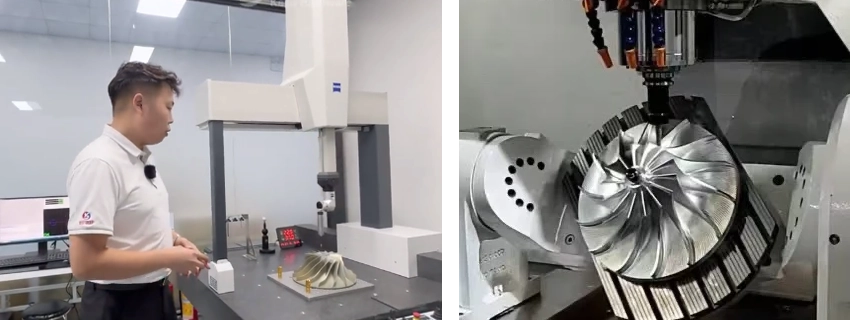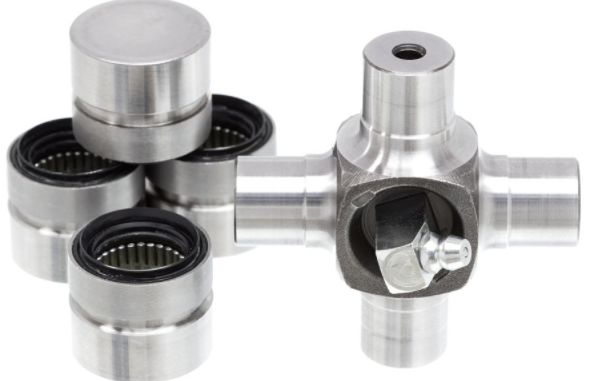Precision machining shops provide specialized manufacturing services, producing high-accuracy components for industries like aerospace, automotive, medical, and electronics. These facilities use advanced machinery, skilled technicians, and rigorous quality control to meet exacting specifications. This article explores the core processes, equipment, materials, and operational considerations of a precision machining shop, emphasizing technical details and systematic workflows.
Core Processes in Precision Machining
Precision machining involves a variety of subtractive manufacturing techniques to shape raw materials into finished components with tight tolerances. Below are the primary processes employed in a precision machining shop.
CNC Machining
Computer Numerical Control (CNC) machining uses programmed instructions to control machine tools. It ensures high precision and repeatability for complex geometries. CNC machines include lathes, mills, and multi-axis systems, capable of producing parts with tolerances as low as ±0.0005 inches (±0.0127 mm).
- Turning: Rotates the workpiece against a cutting tool to create cylindrical parts, such as shafts or bushings. Common tolerances: ±0.001 inches (±0.0254 mm).
- Milling: Uses rotating cutting tools to remove material from a stationary workpiece, ideal for slots, holes, and flat surfaces.
- Drilling: Creates precise holes using drill bits, often integrated into multi-axis CNC systems for complex part features.
Swiss Machining
Swiss machining, or Swiss-type turning, is suited for small, intricate parts with high precision. The workpiece is supported by a guide bushing, minimizing deflection. This process is common in medical device manufacturing, producing components like bone screws with tolerances of ±0.0002 inches (±0.005 mm).
Grinding
Grinding uses abrasive wheels to achieve fine surface finishes and tight tolerances, often below ±0.0001 inches (±0.00254 mm). It is used for finishing hardened steel or carbide components, ensuring smoothness and dimensional accuracy.
Electrical Discharge Machining (EDM)
EDM removes material using electrical sparks, ideal for hard metals or intricate shapes. Wire EDM and sinker EDM are common, with wire EDM achieving tolerances of ±0.0001 inches (±0.00254 mm) for complex contours.
Equipment and Technology
Precision machining shops rely on advanced equipment to meet industry standards. The following table summarizes key equipment types and their specifications.
| Equipment Type | Key Features | Applications |
|---|---|---|
| CNC Milling Machine | 3-5 axis, spindle speeds up to 20,000 RPM, table size up to 120" x 40" | Complex geometries, aerospace components, molds |
| CNC Lathe | Live tooling, bar capacity up to 3", chuck size up to 12" | Shafts, bushings, threaded parts |
| Swiss-Type Lathe | Guide bushing, 7-12 axis, max bar diameter 1.5" | Medical implants, precision connectors |
| EDM Machine | Wire diameter 0.004"-0.012", sinker depth up to 12" | Die molds, intricate cavities |
Materials Used in Precision Machining
Precision machining shops work with a range of materials, selected based on application requirements. Common materials include:
- Metals: Aluminum (6061, 7075), stainless steel (304, 316), titanium (Grade 5), and tool steel (D2, A2). Aluminum is lightweight and corrosion-resistant, ideal for aerospace, while titanium offers high strength-to-weight ratio for medical implants.
- Plastics: PEEK, Delrin, and nylon, used in electronics and medical devices for insulation and biocompatibility.
- Composites: Carbon fiber and fiberglass, machined for high-strength, lightweight applications in aerospace.
Material selection impacts machining parameters, such as cutting speed (e.g., 300-600 SFM for aluminum, 50-100 SFM for titanium) and feed rate (e.g., 0.002-0.010 inches per revolution).
Quality Control and Inspection
Quality control is critical in precision machining to ensure components meet specifications. Shops employ advanced inspection methods and adhere to standards like ISO 9001.
Inspection Equipment
Precision machining shops use tools like Coordinate Measuring Machines (CMM), optical comparators, and surface profilometers. CMMs measure dimensions with an accuracy of ±0.0001 inches (±0.00254 mm), while profilometers assess surface roughness (Ra values as low as 0.1 µm).
Process Documentation
Technicians create process specifications detailing machining steps, tools, and parameters. These documents ensure consistency and traceability, critical for industries like aerospace (AS9100 standards) and medical (ISO 13485).
Key Operational Considerations
Running a precision machining shop involves addressing operational factors to maintain efficiency and quality. Below are key considerations, without focusing on trends or challenges.
Tooling and Setup
Proper tooling selection reduces machining time and improves precision. For example, carbide tools are used for high-speed cutting of steel, with coatings like TiN extending tool life by 20-30%. Setup time is minimized using quick-change fixtures, reducing downtime by up to 15%.
Workflow Optimization
Shops implement lean manufacturing principles to streamline workflows. This includes grouping similar jobs to reduce machine setup changes and using CAM software to optimize tool paths, cutting cycle times by 10-20%.
Skilled Workforce
Technicians require expertise in CNC programming, material properties, and metrology. Training programs ensure operators can interpret GD&T (Geometric Dimensioning and Tolerancing) drawings and program multi-axis machines.
Applications Across Industries
Precision machining shops serve diverse industries, each with specific requirements. The following table highlights key applications and tolerances.
| Industry | Applications | Typical Tolerances |
|---|---|---|
| Aerospace | Turbine blades, landing gear components | ±0.0005 inches (±0.0127 mm) |
| Automotive | Engine components, transmission gears | ±0.001 inches (±0.0254 mm) |
| Medical | Implants, surgical tools | ±0.0002 inches (±0.005 mm) |
| Electronics | Connectors, heat sinks | ±0.0005 inches (±0.0127 mm) |

Conclusion
Precision machining shops are vital for producing high-accuracy components across industries. By leveraging advanced processes like CNC machining, Swiss turning, and EDM, along with rigorous quality control and optimized workflows, these shops deliver parts with tolerances as tight as ±0.0001 inches. Understanding their equipment, materials, and operational considerations ensures clients receive reliable, high-quality products. For shops aiming to expand their reach, a robust SEO strategy targeting industry-specific keywords and structured content is essential.
